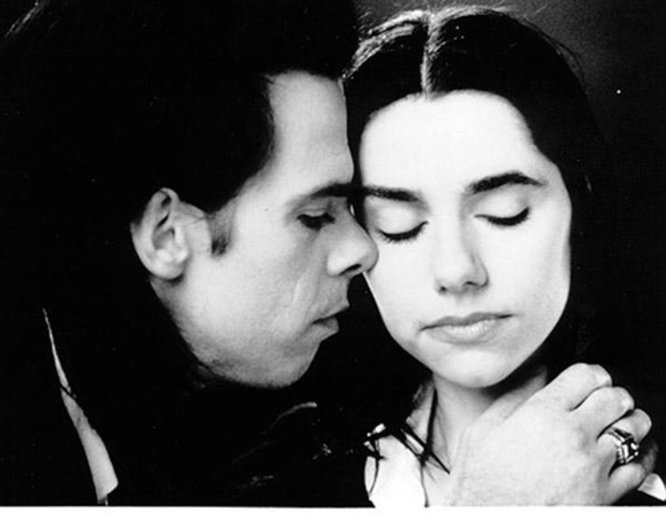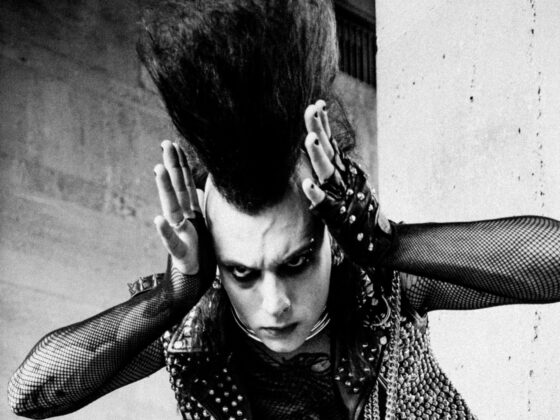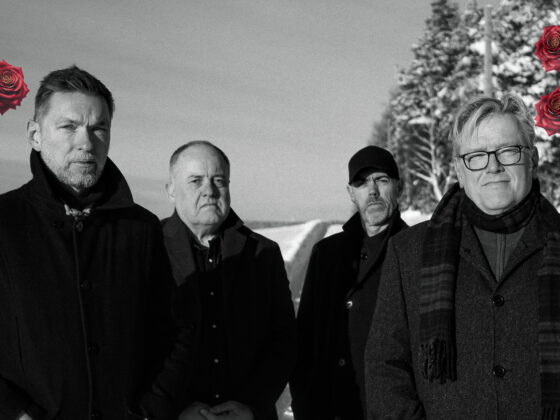Nick Cave has certainly taken command of his press these days, by answering fan’s questions directly through live Q &A events, and his Red Hand Files.
Most recently, Cave killed the proverbial two birds with one stone by answering a male fan’s question on why his relationship with fellow singer PJ Harvey ended in 1997, and a woman’s question why she could not connect to Cave’s music until his confessional record, The Boatman’s Call.
After their collaboration on Murder Ballads in 1996, which featured the duet, “Henry Lee”, The Bad Seed’s next album has been known for quite some time to have been inspired by the demise Nick Cave’s relationship with PJ Harvey, but not until now did Cave go in-depth and detail on their breakup, and the emotional toll he endured which led him to grow as both an artist and a person.
But while it’s long been known that the 1997 album was in part inspired by her, Cave revealed on Tuesday the reasons behind the break-up – and the toll it took on him.
“I didn’t give up on PJ Harvey, PJ Harvey gave up on me,” he wrote, continuing:
“There I am, sitting on the floor of my flat in Notting Hill, sun streaming through the window (maybe), feeling good, with a talented and beautiful young singer for a girlfriend, when the phone rings. I pick up the phone and it’s Polly.
“Hi,” I say
“I want to break up with you.”
“Why?!” I ask.
“It’s just over,” she says.
I was so surprised I almost dropped my syringe.”
“Deep down I suspected that drugs might have been a problem between us, but there were other things too,” he continued, referring to his well-known struggles with addiction, to which Cave is now clean.
“I still had a certain amount of work to do on my understanding of the concept of monogamy,” he continued, “and Polly had her own issues, I suspect, but I think at the end of the day it came down to the fact that we were both fiercely creative people, each too self-absorbed to ever be able to inhabit the same space in any truly meaningful way.”
“Polly’s commitment to her own work was probably as narcissistic and egomaniacal as my own, although I was so deep into my own shit that I can’t really comment on this with any certainty. I remember our time together with great fondness though, they were happy days, and the phone call hurt; but never one to waste a good crisis, I set about completing The Boatman’s Call.”
Cave continued to describe the cathartic album as “an artistic rupture” and “the compensatory largesse for a broken heart” , stating that it “cured me of Polly Harvey” and “changed the way I made music”.
His breakup with PJ Harvey filled him “with a lunatic energy that gave me the courage to write songs about commonplace human experiences (like broken hearts) openly, boldly and with meaning – a kind of writing that I had, until that date, steered clear of, feeling a need to instead conceal my personal experiences in character-driven stories. It was a growth spurt that pushed me in a direction and style of songwriting that has remained with me ever since – albeit in different guises.”
“It also pointed a way to a more poignant, raw, stripped back way of performance – the suspended and barely supported vocal,” he continued. “The Bad Seeds, to their eternal credit, stepped back and just let these piano-driven songs be.”
Cave closed by suggesting that The Boatman’s Call may have some sort of feminine energy due to his breakup.
“It feels a wiser, more empathetic record than anything that had been done previously.”















 Or via:
Or via: